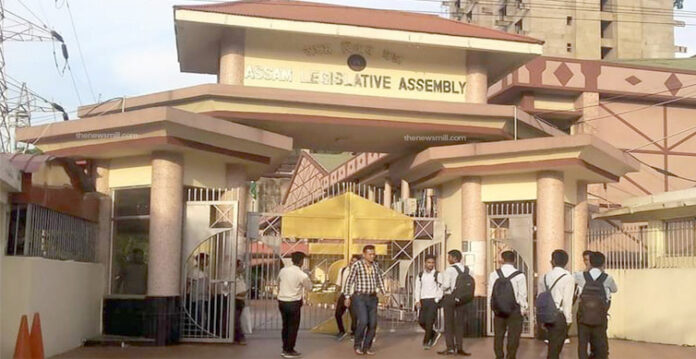In a controversial decision, the Assam Assembly has done away with its nearly 90-year-old tradition of taking a two-hour break on Fridays to allow Muslim Members to offer namaz. This move, which went into effect during the current Budget session, has sparked considerable backlash, especially from the Muslim legislators.
The custom, which had been in place since 1937, was introduced by Syed Saadulla of the Muslim League to allow Muslim lawmakers time to perform their Friday prayers. Historically, the Assembly would start at 9:00 a.m. on Fridays to accommodate the break, a practice that had been followed for generations. However, the Speaker-led Rules Committee, under Speaker Biswajit Daimary, decided to terminate the break in August of the previous year, citing the need for the Assembly to function in line with the Constitution’s secular principles.
While the decision was officially backed by Chief Minister Himanta Biswa Sarma, who hailed it as a step toward productivity and modernization, the move has been criticized for undermining religious practices. The decision has also been seen by many as an attempt to discard the traditions of the Assembly, with Sarma emphasizing that the break was a relic of colonial times. Critics argue that such changes are made solely to align with the BJP’s agenda, ignoring the cultural and religious significance of the practice.
Also Read: “Band karo, band karo!”- protester disrupt Friday prayers at Gurgaon; 30 detained
Rafiqul Islam, an AIUDF MLA, strongly opposed the decision, stating that it was pushed through based on the numerical strength of the ruling party. Islam expressed his concern that the BJP’s dominance in the Assembly led to the decision, disregarding the needs of the Muslim community. “This decision was made purely because they have the numbers,” said Islam, highlighting the unfairness of the move.
The opposition, led by Debabrata Saikia, also expressed dissatisfaction, arguing that Muslim lawmakers should be allowed to perform namaz nearby, without missing out on key legislative discussions. Saikia proposed a solution to the issue, suggesting that an arrangement could be made for the prayer to be conducted close to the Assembly, ensuring that religious obligations do not interfere with legislative duties. However, this suggestion was seemingly ignored in the final decision.
The elimination of the namaz break marks a major shift in the Assembly’s schedule. The new schedule will now see the Assembly begin its sessions at 9:30 a.m. every day, including Fridays, with no provision for the traditional two-hour break. This change has been met with resentment from those who feel that the Assembly is erasing an important aspect of its history and the religious rights of its members.
While the ruling party has framed this change as a necessary step for progress, many see it as a disregard for religious traditions and an unnecessary attack on minority rights. The decision has opened up a deeper conversation about the balance between secularism and religious freedoms, with critics arguing that such moves are a step backwards in fostering inclusivity and respect for all communities.
(This story is sourced from a third-party syndicated feed. Raavi Media takes no responsibility or liability of any nature. Raavi Media management/ythisnews.com can alter or delete the content without notice for any reason.)


